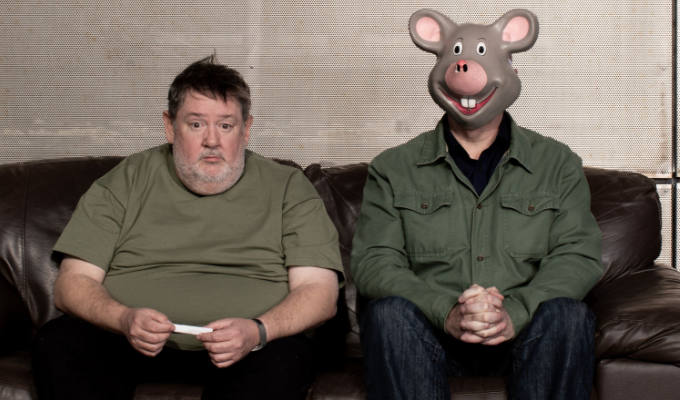Suzi Ruffell: Fringe 2012
Note: This review is from 2012
Review by Jason Stone
There's so much to like about Suzi Ruffell that it would be easy to overlook the flaw at the heart of her first attempt at a solo Fringe hour.
She has a lovely relaxed manner, immense charm and impressive stagecraft that immediately puts a smallish audience at ease, but over the following 55 minutes, it becomes clear that her writing isn't up to scratch.
The strongest part of her set deals with how, when a schoolgirl, she had to come to terms with the realisiaton that she was gay. This well-practised material enables Ruffell to gain the audience's sympathy as well as their appreciation for her jokes as she reveals that she was bullied for it.
In turn, she parodies the attitude of an aunt who's tried in vain to come to terms with her niece's lesbianism in a very funny representation of repressed Englishness. Although this is good, heartfelt stuff, it feels like material Ruffell has been relying on since she first ventured into comedy and isn't strong enough to form the basis of an hour-long show.
A harmless but pointless game based on the names of a couple in the audience draws Ruffell into a comedic cul-de-sac, even though it looked like she'd have a wonderful opportunity to generate banter when it emerges that the middle-aged couple she chooses for the game are near neighbours in her native Portsmouth. The game feels suspiciously like a filler designed to ensure that the show runs to the required length and would surely have been dropped in favour of stronger material, if Ruffell had any.
Another weakness is her determination to assure us that everything she tells us is true. When she mentions a book with an unlikely title, she produces her copy to prove that it exists. But this emphasis on truthfulness isn't just unnecessary, it's stifling. While observational comedy needs to be rooted in truth, the need to entertain is greaty. Comedy should be truthy - to coin a phrase - but exaggeration and falsehood are certainly preferable to a pedantic adherence to complete honesty.
Ruffell's impersonations of her family and her tendency to refer to herself in the third person as 'jester' bring to mind Russell Kane's exuberant performances, and if Kane is a role model for Ruffell, she would do well to emulate his preparation as well as his stylised delivery by committing to the lonely hours that go into writing a satisfyingly coherent show.
If between this year and next, Ruffell constructs a show worthy of her talents then her star could rise with astonishing rapidity. If she returns with a similarly loose collection of material cobbled together for the sole purposes of appearing at the Fringe then she's unlikely to rise above the masses in the middle tier.
Review date: 12 Aug 2012
Reviewed by: Jason Stone
Reviewed at:
Pleasance Courtyard








